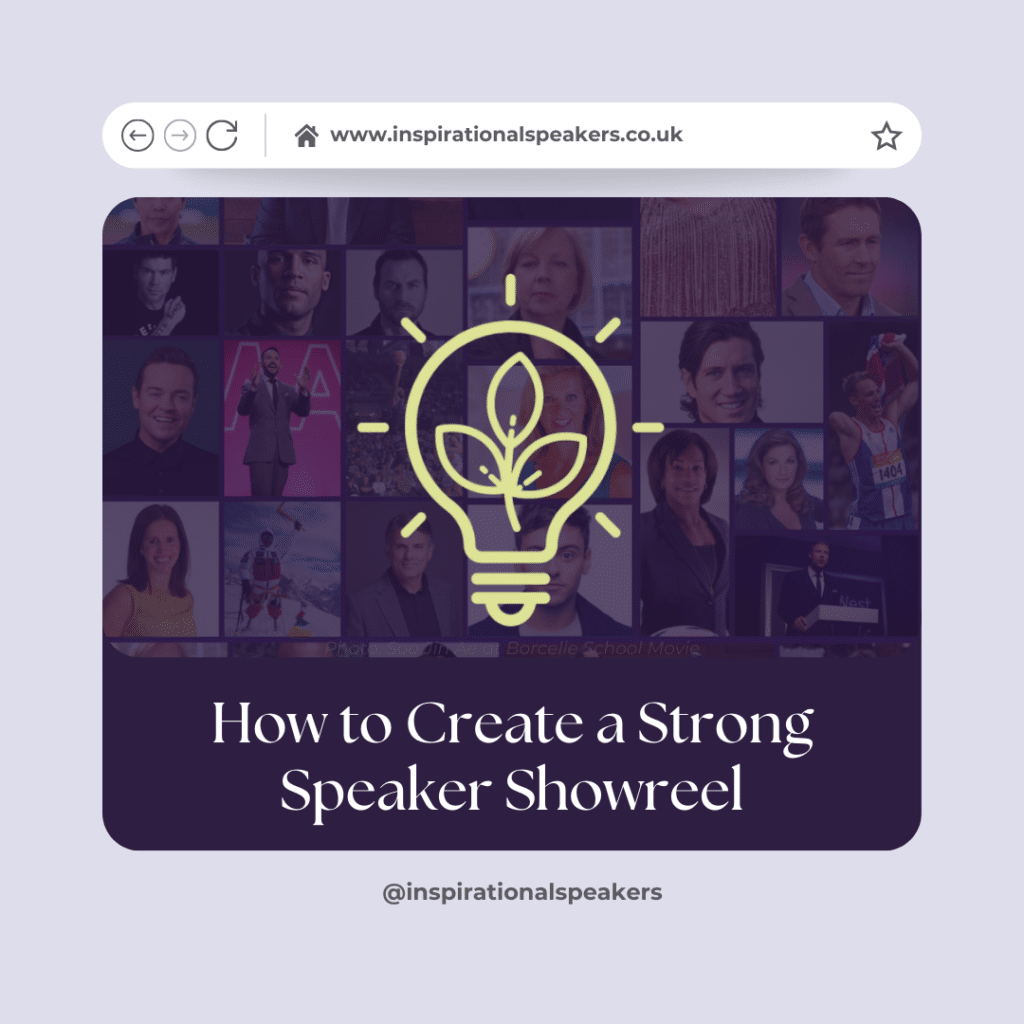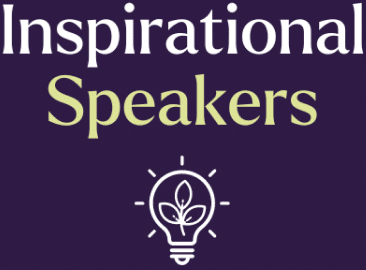You Don’t Have To Be Mad To Work Here – Blaire Palmer
One of our amazing speakers, Blaire Palmer recently went on an RV adventure to try to reduce stress.
What she learned along the way was a truly interesting, honest and relatable and definitely worth sharing with you lovely people….
‘Keeping your head when all about you are losing theirs OR What my own midlife crisis taught me about stress and mental health.
This time last year my home had 4 wheels.
In an attempt to reduce my stress levels, I sold my house and took my daughter and two dogs on a 7-month RV adventure around Europe.
But what my midlife crisis taught me about stress and how to reduce it surprised me. Now I’m sharing the lessons I learnt on the road, and from 20 years coaching near burnt-out, Type-A, over-achieving leaders, with audiences desperate to know how to keep their heads in these crazy times.
Leadership stress is sky high.
Long hours, tough targets, constant change, threats to industry stability, less time and resource than ever, micromanagement and working across time-zones and cultures, are sending leaders over the edge.
88% of leaders report that work is their primary cause of stress with levels of stress increasing with superiority.
Stress and anxiety are now the most common reasons for doctors to sign employees off sick but many of us continue to suffer in silence, lacking the tools and skills to manage our behaviours and emotions while, on the surface at least, being able to convince colleagues we have the situation under control. Until we can’t.
In my own case my breakdown wasn’t dramatic. I didn’t have panic attacks or start screaming at innocent bystanders or even become less effective in my job. I was just struggling to sleep, I was tired and impatient, I felt bored with the predictability of my life and fear of failure was my constant friend. One day I decided to run away.
If only, I reasoned, I could leave behind the causes of my stress and clear the decks I could experience peace of mind, be present to my life and do all the self care things you’re supposed to do. I could heal. Not only that, but I could learn the secrets to mental balance and share those with my clients who were often turning up at our coaching sessions in pieces, hoping that I could put them back together again sufficiently that they could survive the onslaught of the next month.
It turned out that I couldn’t run away.
Changing Your Situation Doesn’t Change Your State: I did not leave my troubles behind. It turns out that while we may blame a myriad circumstance for our stress, we cause our own stress. Stress is a habit of thinking, worsened by a belief that the sufferer is powerless to influence it without radically changing their circumstances. In other words, we blame our circumstances, so we don’t have to face up to the truth that we are the cause of our own stress. It’s the way we see the world, and ourselves, the beliefs we insist are true, the ‘facts of life’ that we hold on to the tightest that cause our stress. When we blame our circumstances, we don’t take responsibility for our reactions to those circumstances. We are the victims. I didn’t magically become a different person just because I was away from ‘normal’ life. I took myself with me. I found other reasons to stress. Where will we stay tonight? Do I have enough petrol? What if this is the biggest mistake of my life? Shouldn’t I be working harder? Journaling, meditation and morning rituals turned out to be the answer for me. Coaching and therapy also help us to see the ways that our perspectives cause us suffering. I had to change my thoughts in order to change my experience. Changing your situation (or blaming your situation) won’t work unless you change your thoughts. As the wonderful Byron Katie says “Believing your thoughts is the cause of all suffering. When you believe your thoughts, you suffer. When you don’t believe your thoughts, you don’t suffer”.
There’s No Such Thing as Work-Life Balance: Balance isn’t about working fewer hours, it’s about a balanced mind. And whilst I am a passionate advocate of different working practices (flexible, remote, part-time, Teal, self-management etc.) the quest for greater balance isn’t achieved simply by having less to do. Reducing working hours does not reduce stress. Having more ‘time off’ does not reduce stress. Leave of absence of ‘recover’ from over-work does not reduce stress. Balance is only achieved by having a balanced mind. I recall one day in Italy spent in an adrenalized fuzz, madly tidying our AirBnB apartment with such fervour that it was nightfall by the time I realised I had lost the whole day. I could have been reading a book, or sitting on the beach, or chatting with my daughter. Instead I was mindlessly, intensely tidying. I realised that I couldn’t find work-life balance even when I had no work to do, unless I could balance my mind. And my mind was not balanced. This comes down to curing our addiction to adrenaline. So hard-wired is our addiction to adrenaline that many leaders claim they wouldn’t be able to do their job without it. More than that, they don’t think they’d enjoy it as much without the adrenaline. Yes, there are times when that heart-pumping, blood-thumping, mind-altering adrenalized state is just what you need to solve the problem right here, right now. But even elite athletes understand that they need time to recover, to practice, to review performance, to be. When leaders learn to identify their addiction to adrenaline, to intervene before they are in an adrenaline fuelled frenzy and find ways to work that don’t rely so heavily on this hormone to get stuff done they can start to find true balance.
Control Freakery is bad for your health. Most of us believe that being prepared is the best way to prevent stress. So we invest a huge amount of resource in the pursuit of the right answer, the right path, the least risky option and, until we are 99% sure we’re right, we won’t take action. Or we take action (and allow others to proceed) but with our fingers right in the detail, trying to manipulate every decision, every step, every task in order to guarantee success. However, this illusion of control is actually a significant cause of stress because it puts us in conflict with reality. I was determined that our 29-year-old VW T25 High Top was going to get us all the way from the start to the end of our 12,000 mile trip. And I fought hard when my ego (demanding to be right) and the reality (the van wasn’t going to make it) came in to conflict. I waited too long to change my mind, spent too much money trying to fix up a dud V-Dub and eventually, when we bought a replacement (a 10-year-old all mod-cons motorhome), had to swallow my ego and admit I had been wrong. We cannot control outcomes, yet we operate as if it is humanly possible to guarantee success and that failure is a sign of personal incapability. Instead we need to adopt a bug-fix mentality. By the time you’re 99% sure you’re right it’s probably too late. Fail fast, learn and try again. Let go of the attachment to being right.
Being willing to be wrong is much less stressful.
Your value is in your head and heart not your hands. Leaders need to understand where their true value comes from. The workplace convention is that busy is normal and busy is good. But leaders need time to think, to listen, to reflect. They need time to work on their state, to think about their thinking patterns (metacognition) and to focus on one topic at a time. Leaders with busy minds cannot hold on to a thought long enough to see a clear course of action. Those who can attain a quiet mind are better problem solvers, coaches and sensors. We don’t need more busy leaders; we need leaders who can be fully present to their thoughts and the thoughts of others. On my return to a permanent home in the UK I decided to operate my diary in a radically different way. I spend far more time in thought, with the laptop off. I spend far more time in curious conversation without time limits. I don’t book back to back calls or travel hundreds of miles for a 45 minute meeting. Have a look at your diary. Is it full of what’s important or just what felt important at the time? It’s time to take charge of your diary. Create boundaries. Have interesting conversations. Make time for people. Your value is in your ability to create space for others to do their best work, not in your attendance at every meeting, on every conference call, and proof-reading every report and presentation. Don’t be the answers person, be the curious-questions person. Have hours and days where you’re not scheduled. We don’t need another set of hands on deck. We need your wise counsel and your insightful questions.
So, did it work, you ask? Did 7 months of a totally different routione, living only with what we could take with us in the RV, breaking from the traditional routines of work, make me a less stressed person? Did I reinvent myself? Is my midlife crisis over?
I’d love to say yes, I’m renewed and revitalised. I’d love to say that I no longer meltdown, argue with my loved ones or get anxious about work. I would love, if you met me, to appear zen and wise and be able to inform you that I maintained my state when that guy cut me up at the roundabout on my way to your event.
The truth is that mental health is a work in progress for everyone. Enlightenment is not the goal. Success is simply the commitment to keep working on your state, to step back and question your thinking and your motives, to make minor adjustments and to explore new approaches.
In the end I realised that life is a game of snakes and ladders. You throw the dice, and you keep throwing the dice. Sometimes you land on a ladder and up, up, up you go. It’s a good day. Sometimes you land on a snake and down, down you go (although it’s part of the game so you may as well enjoy the ride). Sometimes it’s a boring square with no snake and no ladder and it’s someone else’s turn. The only decision you have to make in this game of luck is whether to throw again.
When leaders neglect their inner world, avoid working on themselves and ignore the early signs of burnout they risk not only damage to their own long term health but the health of their people. The organisation can only be as developed as you. If you want your people to be healthy, you have to start. If levels of stress in your organisation are high, it begins with you. What are you actively doing day after day to work on your own stress, find your own balance and get out of habitual thinking that keeps you stuck in the busy-loop? That’s your job.
So no, I’m not zen and I haven’t become a saint or a guru. But I’m enjoying the ups and downs of the game. And I’m helping others to enjoy it too, even in a crazy, crazy world.’
Blaire Palmer is the authority on disrupting the future of leadership, and wants to help you lead the workplace reformation.
With over twenty years of experience coaching boards and senior leaders, Blaire challenges conventional notions of work and leadership. As a dynamic keynote speaker, she fearlessly dismantles myths surrounding leadership and empowers today’s leaders to inspire their teams amidst constant change.
Showreel

Contact us
Call us on 020 7993 2724 or click below to enquire and will will be back to you as soon as possible.
Past Blog Posts







